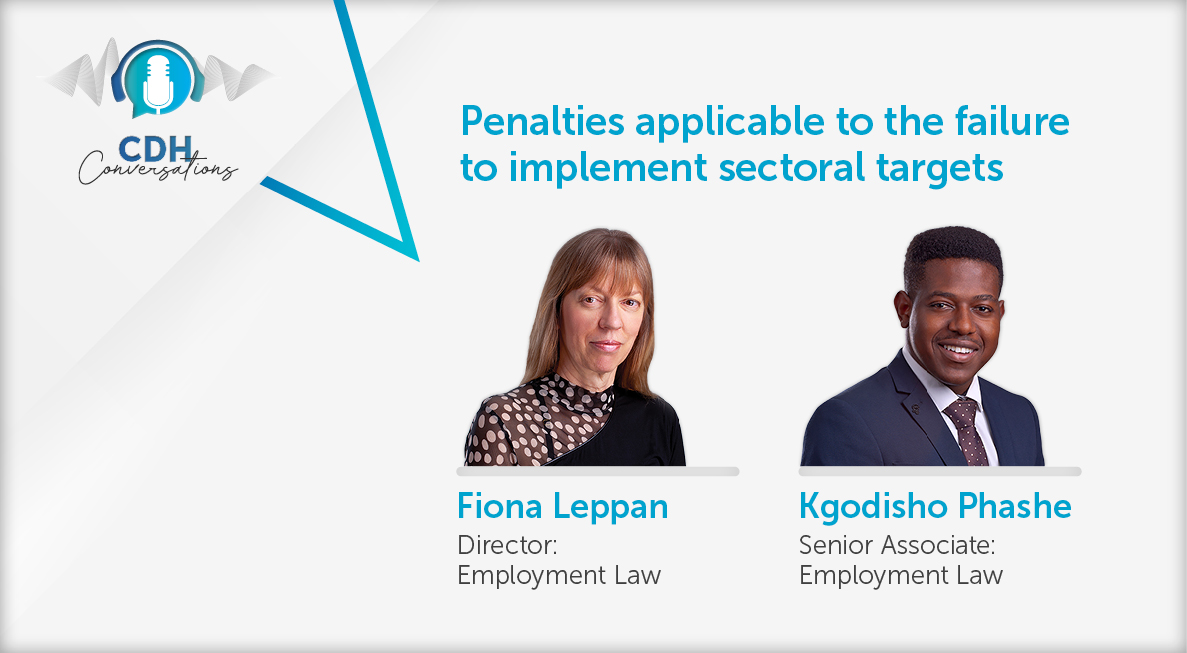Some rules are meant to be broken, but at what cost in a court of law?
At a glance
- The court rules are designed to expedite the resolution of disputes, and excessive focus on minor rule deviations hinders the civil justice system.
- Breaking the Uniform Rules of Court can have severe consequences for litigants, as seen in the case of Lekwa Local Municipality v Afri-Infra Group. Failure to comply with procedural requirements, such as seeking condonation for late applications, can result in dismissals and punitive costs.
- The court rules serve as boundaries for litigation, and while strict adherence and blatant violation are both undesirable, they are essential for maintaining the principles of law.
It is often said that rules are meant to be broken. However, the consequences of breaking the Uniform Rules of Court (Rules) could be scathing on a litigant. This was evident in the case of Lekwa Local Municipality and Another v Afri-Infra Group (Pty) Ltd [2022] JDR 2254 (MN). In this case, two interlocutory applications were brought by the first applicant, being Lekwa Local Municipality and the second applicant, Mr Gert Sibanda respectively, against the respondent, Afri-Infra Group (Pty) Ltd, in terms of Rule 30(2)(c). The common complaint by the applicants was that the respondent had irregularly amended its particulars of claim in terms of Rule 28.
The respondent opposed the applicants’ respective applications on the basis that the two applications were brought late without applications for condonation. It was common cause that although Lekwa Local Municipality’s condonation application was not properly before the court and could not be adjudicated on, Sibanda had sought condonation for the late filing of his application in terms of Rule 30(2)(c). The crux of the respondent’s opposition was that Sibanda had in any event failed to seek condonation for the late filing of the Rule 30(2)(b) notice preceding the Rule 30(2)(c) application. The subsequent condonation application in respect of the application was therefore stillborn.
Set period to raise an objection
The contention by the respondent was based on the fact that pursuant to service of the respondent’s notice of intention to amend its particulars of claim in terms of Rule 28, Sibanda was afforded 10 days within which to raise an objection to the proposed amendments. The 10-day period lapsed and the amendment to the particulars of claim was perfected. Twenty-five court days after service of the amended particulars of claim, the applicants served separate notices in terms of Rule 30(2)(b), on the basis that the amendment to the particulars of claim was irregular. Sibanda proceeded to serve the Rule 30(2)(c) application on the respondent 15 days out of time.
The central issue in the case was whether the court could condone the late filing of the Rule 30(2)(c) application in circumstances where Sibanda failed to bring a similar condonation application excusing the late filing of the preceding Rule 30(2)(b) notice. Rule 30(2)(b) required that within 10 days of becoming aware of the irregular step, Sibanda ought to have served his Rule 30(2)(b) notice. The court reiterated the principle found in the case of Klein v Klein [1993] (2) SA 648 (BGD), that “knowledge” must be distinguished from “appreciation”. The knowledge envisaged by the prescripts of the rule is the knowledge that a step has been taken, whether or not it is coupled with an appreciation that the step was irregular or improper.
In any event, in the application of Rule 30, the court found that it must only apply to irregularities of form, and not matters of substance. This principle was recently deliberated by the Constitutional Court in the case of Afrocentrics Projects and Services (Pty) Ltd t/a Innovative Distribution v State Information Technology Agency (SITA) SOC Ltd and Others [2023] ZACC 2, where the court a quo had found that the applicant’s main application was irregular and improper. The Constitutional Court remitted the matter back to the court a quo for a proper determination in terms of Rule 30 where the court must satisfy itself that the proceeding or step (not the substance) is in fact irregular or improper.
Findings
In light of these considerations, the court found that Sibanda’s condonation application for the late filing of the Rule 30(2)(c) application was in fact hollow as there was no application for the condonation of the first irregular step, that being the service of the Rule 30(2)(b) notice outside of the 10-day period to anchor the application. Therefore, the court dismissed the applicants’ Rule 30(2)(c) applications.
Importantly, the court also granted an order for punitive costs against the applicants for their failure to apply for condonation for the late filing of the respective Rule 30(2)(b) notices. It was the opinion of the court that “this should not have happened and borders on gross negligence and therefore extravagant on the time of the court and litigants”.
As was pronounced in Louw v Grobler & Another:
“The rules set the parameters within which the course of litigation has to proceed. The rules of engagement, must, therefore, be obeyed by the litigants. However, dogmatically rigid adherence to the uniform court rules is as distasteful as their flagrant disregard or violation. Dogmatic adherence, just like flagrant violation, defeats the purpose for which the court rules were made.”
The rules therefore act as anchors in the tides of injustice, to keep the principles of law afloat.
The information and material published on this website is provided for general purposes only and does not constitute legal advice. We make every effort to ensure that the content is updated regularly and to offer the most current and accurate information. Please consult one of our lawyers on any specific legal problem or matter. We accept no responsibility for any loss or damage, whether direct or consequential, which may arise from reliance on the information contained in these pages. Please refer to our full terms and conditions. Copyright © 2026 Cliffe Dekker Hofmeyr. All rights reserved. For permission to reproduce an article or publication, please contact us cliffedekkerhofmeyr@cdhlegal.com.
Subscribe
We support our clients’ strategic and operational needs by offering innovative, integrated and high quality thought leadership. To stay up to date on the latest legal developments that may potentially impact your business, subscribe to our alerts, seminar and webinar invitations.
Subscribe




